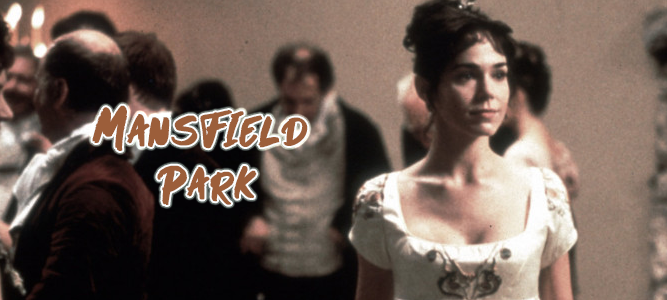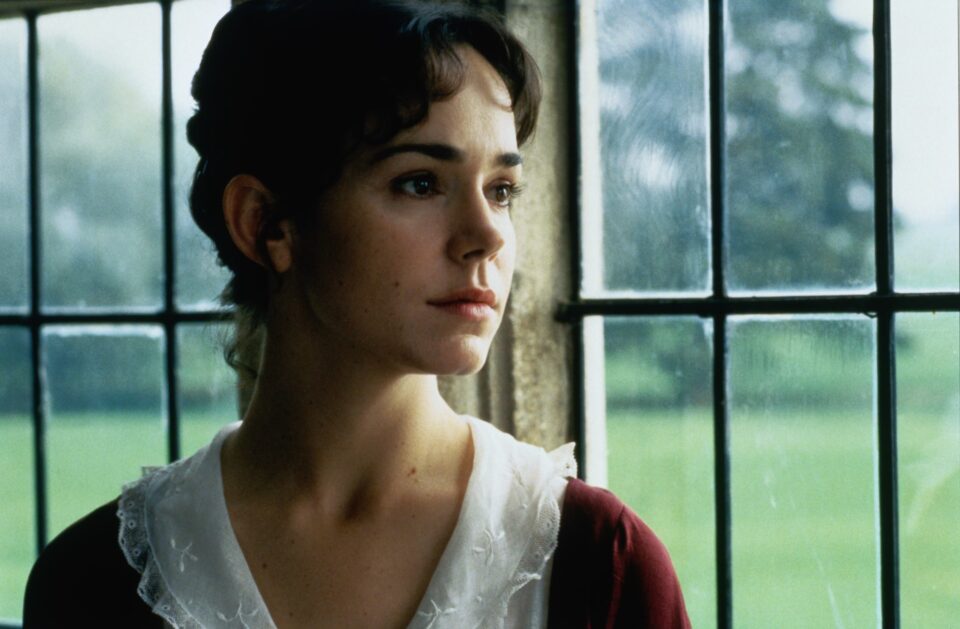

Title: Mansfield park
Author: Jane Austen
Genre: bildungsroman
Plot:
A girl of sound principles and great shyness, Fanny finds in her cousin Edmund the only guide and support for her growth. Around her, the other cousins, Maria, Julia and Tom, capricious and spoiled; two aunts, one of which, Aunt Norris, unbearable and often offensive in pointing out the humble origins of the child, and the head of the family, the baronet Sir Thomas Bertram, a man of great rigour and dignity, but blind to the real affective and emotional needs of his children. To complete the picture, the Grant and their relatives, the unscrupulous and wealthy Crawford siblings who arrived from the capital; Mr Rushworth and Mr Yates.
Written between 1812 and 1814, Mansfield Park, along with Northanger Abbey, is one of Jane Austen‘s least known novels. Despite this, at the time of its first publication in 1914, this novel achieved such a great success with the public that it was translated into French already in 1916.
The novel, in its simplicity, is meant to be a critique, not only of the new bourgeoisie, which is taking on the importance that once belonged to the nobility, but also of the “dissolute” city customs that contrast with those of the quiet rural life.
The protagonist of the novel is Fanny Price, a young woman who as a child was adopted by her uncles and grew up with her cousins. The only one to treat her as an equal, however, is only her cousin Edmund, whom the heroine finds herself secretly in love once she grows up. One day, unfortunately, the two Crawford siblings arrive in the countryside and forcefully introduce themselves into their lives for personal gain…
The characters
Fanny is an atypical Austenian heroine; she has neither Elizabeth’s boldness nor Emma’s character, but she is shy, reserved and sensitive. Despite trying to do what she can in her small way, she remains an immobile character who risks her happiness in order to follow the rules imposed by society and the etiquette. In fact, the girl openly takes a stand only when she refuses a very advantageous marriage proposal, meeting the wrath of her uncle.
Probably her inability to act wants once again to criticize the power that the rich, albeit of non-noble origin, exercised over those considered to be of a lower class and the male exercised over the woman, considered an inferior being. However, when Fanny is brought back “home”, it is underlined, not only her importance to the members of the Bertram family, but also her relevance in keeping the family together by guiding them in the path of good principles.
The return to the biological family sees the protagonist broken in two, as if she belonged neither to that house, devoid of education and rules, nor to Mansfield, where she realizes that the good principles with which she was educated are not followed – making the novel seem almost a parody of the evangelic novel.
Her male counterpart is cousin Edmund, equally immobile and slightly self-righteous in his choices. He is unable to raise his voice to be heard in family matters, and lets himself be carried away by two beautiful girlish eyes. In fact, he moulds the woman of his desires into Fanny, but is betrayed by his feelings when he meets Mary, and as punishment, even if in the end he chooses the former, he must learn to love her with a less passionate love than he felt for the latter.

The secondary characters, as always happens in Austen’s novels, are represented with descriptions full of irony.
As always, the ill-matched marriage is criticized, above all thanks to the unions made by Aunt Bertram and her sisters, but also the damage caused by the lack of a parental figure. In particular, the failure of the Bertram uncles as parents is evident not only in the final choices of the two daughters Maria and Julia, but also in the desire to help Fanny to have better prospects while continuously keeping her in a state of inferiority and gratitude. Of the latter, it can be said that she found a sort of guide only in her brother William and in Edmund.
I didn’t really appreciate the actions of the two Crawford siblings, but I can say that they are typically Austenian negative characters, the social climber and the scoundrel. I hoped until the end that Henry would change, and I was really disappointed when the events deprived him of any possibility of redeeming himself in my eyes and Fanny’s.
But what I hated the most was Aunt Norris, an abject being who does everything to feel indispensable to others but who doesn’t have the same benevolence as Mrs. Jennings, on the contrary, she is endowed with a lot of wickedness and a sense of superiority without end.
Themes
One of the themes addressed in this novel is slavery. Although treated explicitly only once and greeted with silence by the characters, it is present throughout the novel. Like many Regency nobles, Sir Thomas also made his fortune and built Mansfield park with the proceeds of his plantations. Moreover, it is probable that when Austen sends the nobleman to personally check his plantations, she is covertly referring to the consequences produced by the abolition of slavery in England in 1807.
Although Austen participated in and organized domestic plays during her youth, in this novel we see her criticizing the theatre which, seen as a source of promiscuity and physical contact with people of the opposite sex, aligns her perfectly with evangelical thought. In fact, it is not clear whether this work was written during the period of her conversion.
The judgment of the young characters is then explicitly criticized when it is mentioned that they are unable to separate fiction from reality, creating an embarrassing game of couples, of which Fanny is the silent spectator.

Personal thoughts
I found it very difficult to review this novel. Although I appreciate the veiled criticism, the construction of the characters and above all the natural environments, described in a simple but evocative way by Austen, I felt a deep pity towards the Fanny and indifference towards the love story. In fact, I wasn’t thrilled as with the other works by the same author, and I was also generally a little disappointed.
Reading flows pleasantly thanks to the fresh and simple style. Overall, the work is enjoyable, but one should not expect much and above all avoid comparisons with other novels by the same author.
